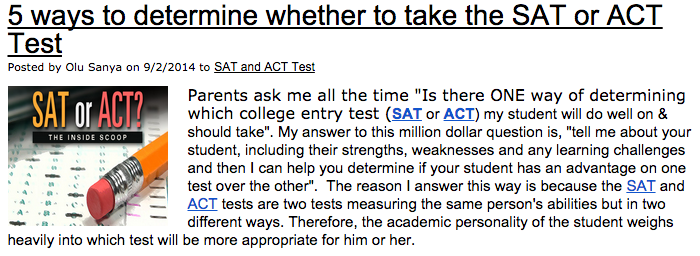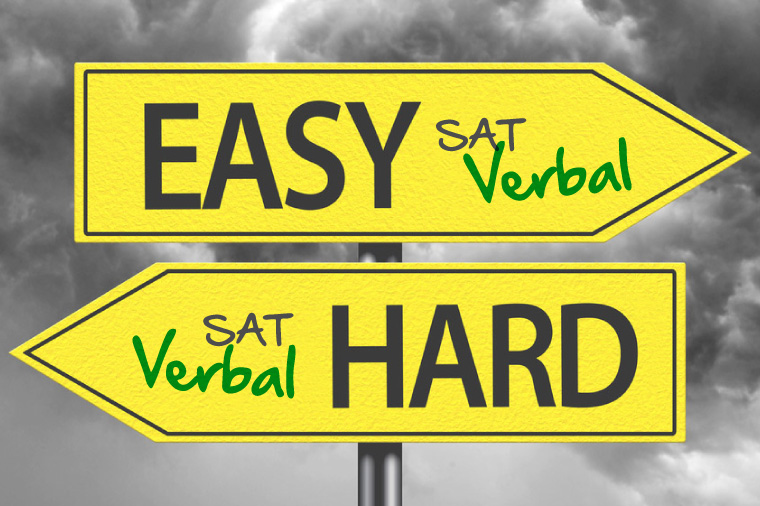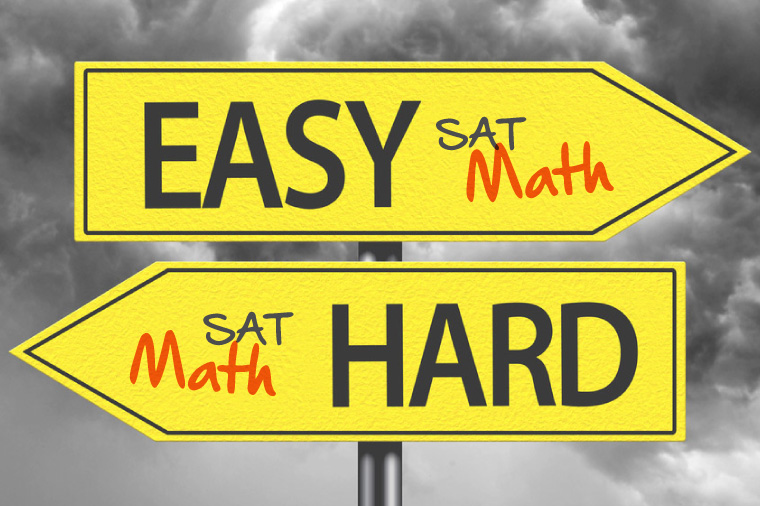SAT vs ACT | What’s the Difference?

As a test prep company we get a lot of questions about the SAT & ACT test; what is the difference between the SAT & ACT? Does it matter which test my student takes? Which test is better if my student has a learning disability? This blog post will navigate the differences and help you make a more informed decision about which test fits your student.
Traditional the SAT or the ACT test is popular in some states than others (see SAT_ACT by states image). The key point is, one test isn’t necessarily better than the other; it’s just different.
| SAT | vs | ACT |
|---|---|---|
| 2400 (1500) | Highest score (National Average) | 36 (21) |
| 3hr 45 mins | Length of test | 2 hr 55 mins (optional 30 min writing section) |
| 10 short sections (10-25 mins): 3 Critical reading, 3 Math, 3 Writing (includes essay), 1 experimental not graded |
Sections | 4 long sections (35 – 60 mins)
1 English, 1 Math, 1 Science, |
| Vocabulary based and critical thinking skills required to find answers in passage | Verbal Section Differences | Answers to reading passages can easily be found in the passage |
| 10 short sections (10-25 mins): 3 Critical reading, 3 Math, 3 Writing (includes essay), 1 experimental not graded |
Sections | 4 long sections (35 – 60 mins)
1 English, 1 Math, 1 Science, |
| Vocabulary based and critical thinking skills required to find answers in passage | Verbal Section Differences | Answers to reading passages can easily be found in the passage |
| Arithmetic, Geometry, Algebra & Algebra II | Math Section Differences | Arithmetic, Geometry, Algebra & Trigonometry |
| No Science Section included | Other Differences | Science Section included |
| Test reasoning & logic skills | Goal of the test | Test knowledge of high school curriculum |
| 1/4 deducted for wrong answers, select answer careful, you don’t have to answer every question. | Wrong Answers | No deduction for wrong answers. Answer all questions. |
| Practice test taking tips & strategies | How to prep for the test | Memorize facts and formulas |
For the student trying to determine which test they should take; here are a few guidelines:
1 ) The ACT is a fast pace test (e.g 60 Math questions in 60 mins). If your student is a slow reader (75% of ACT requires heavy reading) and is intimidated by scientific facts and experiments; take the SAT Test
2 ) Can your student process math that is not like their homework and excels atproblem solving? if yes, take the SAT Test
3 ) Does your student have problems with “shifting” (going from one thing to the next seamlessly)? If yes, take the ACT Test since there are less shifts from one section to another.
4 ) Does your student hate reading & analyzing long passages to pick out the right answer? if yes, take the SAT Test since it consists of less reading compared to ACT test. 75 % of the ACT test involves heavy reading of long passages.
5 ) Does the student need accommodations? If yes, then apply to both boards and see if they both grant accommodations – this might make the decision by itself. The Test that grants extended time is the test to take.
6 ) Super-scoring is common for the SAT Test, which means schools will look at your highest score from each of the three SAT sections. So a retake strategy could be to focus on improving a specific section the second or third time you take the SAT test. Most schools don’t allow super-scoring for ACT scores except a growing number of schools around the country; so you have to study for all 4 sections each time you take the ACT. Find out from the schools you are applying to, if they allow super-scoring for ACT scores.






